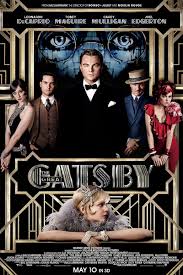
After I returned to North America, I discovered not watching movies on a regular basis had become a habit. Though I don't harbor a Caulfieldian loathing for motion pictures in general, I don't watch films regularly for pretty much the same reason I don't eat candy regularly – though delightful on rare occasions, the idea of consuming either on a regular basis no longer appeals to me.
So when do I watch movies and what sort of films peak my interest enough to sit down and watch them? I have no specific answer for this, but one weak point for me are films based on novels, especially novels I love; however, seeing films based on books are, and have always been, a real hit-or-miss experience for me. When I leave the theater, I am either satisfied by a film's attempt to capture the narrative, (Fight Club, No Country For Old Men) or I am utterly bewildered by the thought that the director/producer/actors/etc., had not read the novel before they began working on their film adaptation of it (Alice in Wonderland, the 1998 version of Great Expectations). The day I learned Baz Luhrmann had released his adaptation of The Great Gatsby, I was overcome with both joy and trepidation.
I found the 1974 version of Gatsby, the Jack Clayton version starring Robert Redford that has been forced upon every person who has ever taken a high school English class in North America in the past thirty years, mediocre at best, so I was thrilled to learn another adaptation of the novel had been filmed, but I was wary of Baz Luhrmann's direction. Luhrmann's adaptation of Romeo and Juliet is another regular feature of most high school English classes – I have shown it in my English classes as a supplement to the play on many occasions – and though the loud, whimsical, and colorful rendition of the classic does engage students, it also takes tremendous liberties with the play, some of which begin to transform Shakespeare's original vision into nothing more than a glorified pop music video. The evening I went to the theater to see the latest screen version of Gatsby, I hoped for the best, but feared the worst.
My impressions? During the first thirty minutes, I sat in my seat in a state of agitation. Like his Romeo and Juliet, Luhrmann has taken some artistic liberties with his version of Fitzgerald's novel. For example, we encounter Nick in the sanatorium where he is recovering from alcoholism and depression. The doctor prescribes writing therapy and Nick essentially writes the novel in the sanatorium as part of his convalescence. For reasons I'll never understand, Luhrmann chooses to paraphrase the opening of the novel rather than simply allow the original text. Was he afraid today's audiences would not understand the line, Whenever you feel like criticizing any one just remember that all the people in this world haven’t had the advantages that you’ve had? He also skips the immortal line Her voice is full of money which Gatsby uses to describe Daisy toward the end of the narrative. Why that line, which for me is the entire thematic thrust of the narrative captured in six simple words, is omitted, I'll never know.
In any event, I found the first few scenes of the film dizzying and perplexing and I could not help but think the movie was going to be nothing more than another one of Luhrmann's extended music videos based loosely based on literature. Nevertheless, after a half-an-hour, a strange transition occurs. I'm not sure if it is because you become acclimatized to the overall style of the movie or whether it is based more on the acting and the visuals, but about a third of the way into the film, Luhrmann brings Fitzgerald's vision of the novel more or less to life. I ended up leaving the theater satisfied. The film was not without its flaws, and I'm certain some purists will absolutely hate it, but in my mind, Luhrmann's The Great Gatsby is a good adaptation of the novel, one I'm sure I'll end up showing to students in my future English classes.

 RSS Feed
RSS Feed

